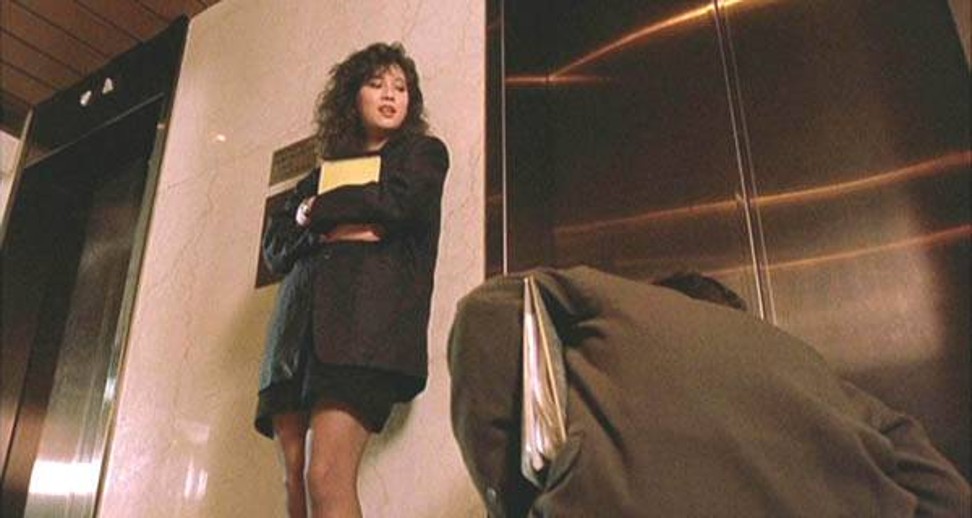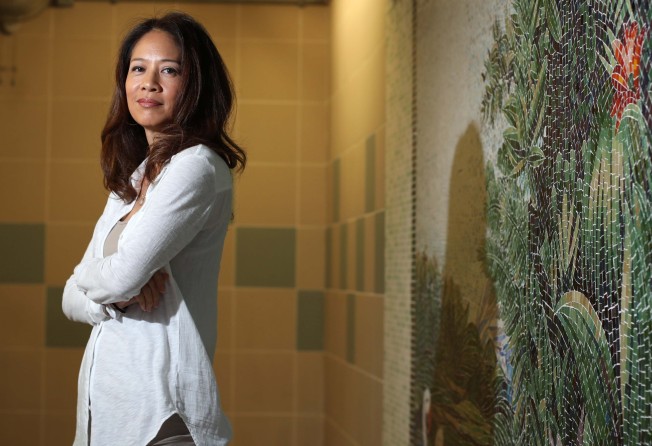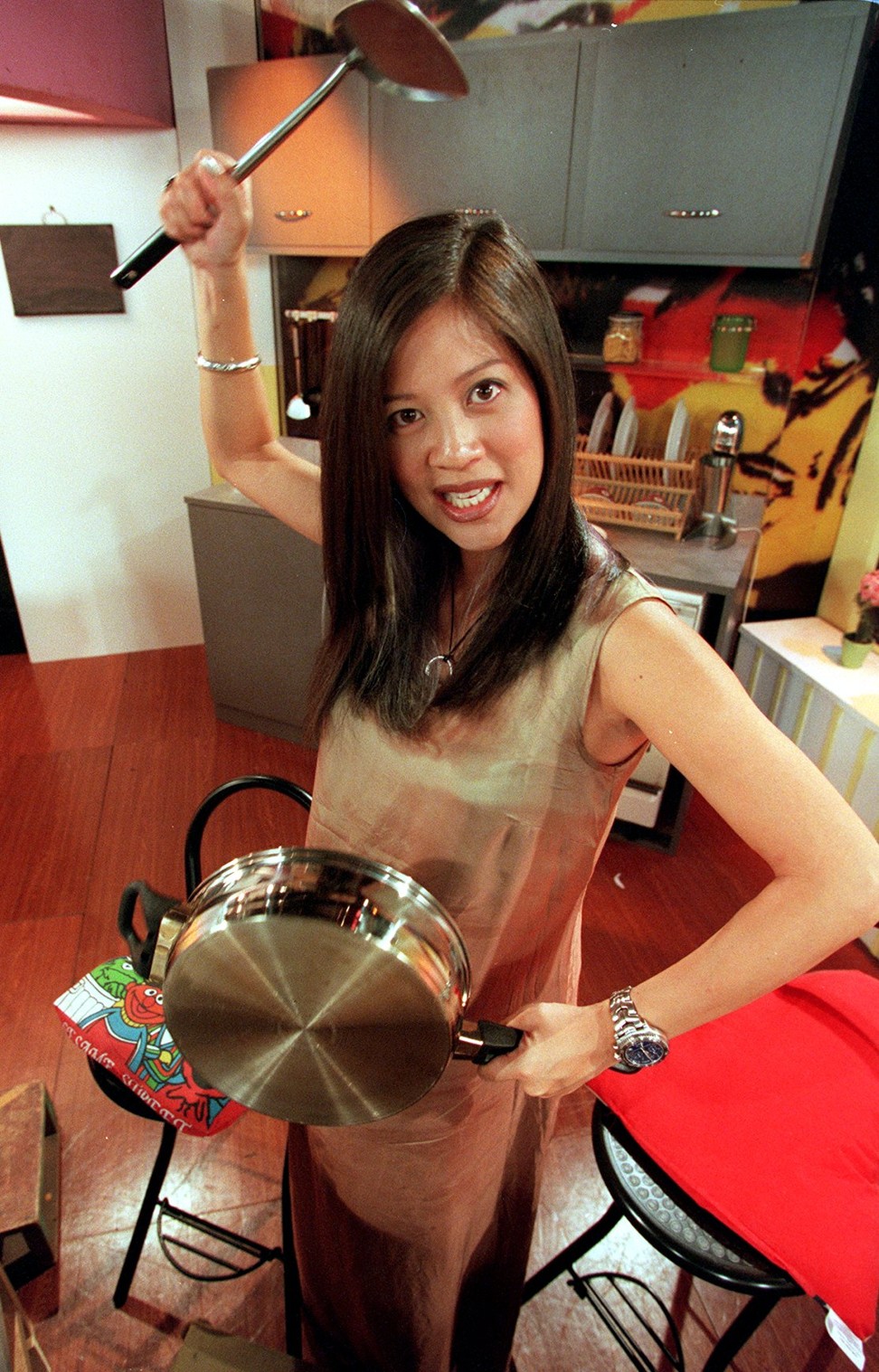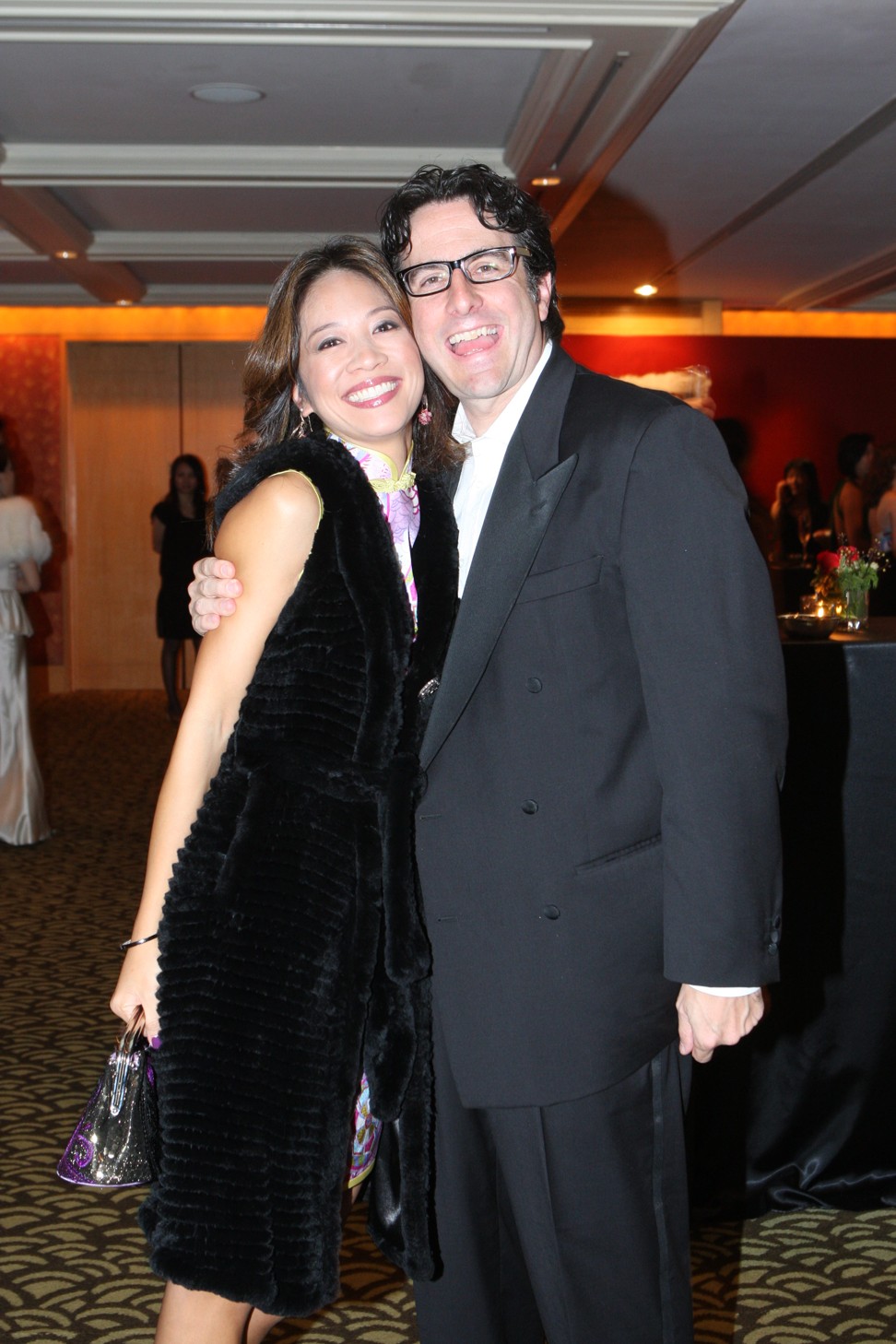
Director Crystal Kwok on Jackie Chan, sex talk and where Asians fitted into segregated US South
- The former actress is investigating her family’s experience in the ‘binary’ American South in new documentary Not Black and White
- Her habit of challenging the status quo earned her the nickname ‘Flip-lip’ as a child

Small talk I learned to talk back at a very young age, so as early as I remember, my mother called me “Flip-lip”. It was my calling to challenge things and that stuck. I’m the middle child of three girls. Yes, the black sheep, blamed for everything even if I wasn’t in the room. I have a favourite word now – liminal, the betwixt and between place – and I think I’ve always been in that blurry space. I was born in San Francisco (in 1966) but we moved to Hong Kong when I was three and stayed six years.
My first language, I guess, is English but I went to a local school, Maryknoll, where everybody spoke Cantonese. I used to have a tape recorder and I’d record myself and my sisters, and when we left I had a Chinese accent.
Crystal clear Then I went to a very small, all-girls Catholic high school, the Convent of the Sacred Heart, in San Francisco. It was in a mansion and we’d have strawberries and champagne for family-brunch weekends – ridiculous. For a long time, I was in my shell.
But in my senior year I was in A Midsummer Night’s Dream at the ACT (American Conservatory Theater) – I was just a little fairy but guess who played Titania? Annette Bening. Then I pursued theatre and did drama at UCLA (University of California, Los Angeles).
Game changer Oh god, I hate talking about that Miss Chinatown pageant (Kwok won the USA title in 1987, in San Francisco). OK, I have to credit that horrible, stupid process … because you wear these cheongsams, because you have photos taken with these ham sup lohs (dirty old men), you learn how to take care of your body and how these men are. And maybe, maybe, that woke me up in some way. It’s the first reality hit that you’re becoming an adult female.

When my chaperone brought me over to Hong Kong as part of the prize, she said, “Remember, you have to play the game.” I didn’t know what she meant.
I was a stupid college girl – I was in my third year at UCLA, and I was going to stay in Hong Kong for a month. I ended up staying a year because I got a contract with Golden Harvest and I did four films, so I saw the world through that film circle.
They took me to these places where I ate HK$2,000 (US$255) abalone every night until I was sick of it, and there were these older men who had different girls every day, and I still didn’t understand how it worked. But I didn’t feel threatened. I think it goes back to the mouth thing, the flip-lip.
Acting up In my first film (Dragons Forever, 1988), I played Jackie Chan’s legal assistant and they dressed me like a slut – miniskirt, high heels. I said to him, “I’m not comfortable with this.” He talked to the art director and, literally, the next day I got glasses, a long skirt, a lawyer’s file.
You can see it in the film – in some shots I’m still in the short skirt and, in the rest of it, I’m in glasses. But people didn’t appreciate my mouth.
There was another film where I questioned the art director and he really hated me. And, honestly, I didn’t like being gazed at. I liked being able to tell people what to do, so I quickly learned I was much more comfortable behind the camera. Jackie was good to me. He allowed me to go to the post-production processes for his films. I learned a lot from just hanging out with him, he supported me.

In the 1990s, I had come back here and was trying to get help with a film I wanted to make, The Mistress (1999). I bumped into Jackie at a funeral and he said, “What do you need?” He opened windows and I got production space and equipment at a discount.
That film was so mispromoted, it got a category-III rating and the kind of people that went were busboys who thought they’d see some dirty film in their lunch break. But there was no porn, no nudity at all. It was all implication. It came out at the same time as Fight Club. That wasn’t category III and it was bloody.
Secret places I met Richard (Wertheimer, her husband) on a boat here, as one does. He claims it was in 1995, I have no clue. I just remember we got married on 9/9/1999 and my wedding dress had nine layers. When we were dating, I was doing a live cable TV show at the Star Ferry from 10.30pm to 11pm.
He worked in a bank and had to be up at 4am, but he’d take me out for dinner afterwards. He was exhausted. In the show, my natural way of talking about sexuality was new for Hong Kong.
People thought I was being controversial to promote myself. The way my brain works, if I believe in the things I do, if I don’t feel embarrassed, if I don’t think I’m doing anything wrong, there’s no reason to justify anything.
We lived in Shek O for eight years – we have three kids: Wolf, 18; Red, 15; and Kiva, 13 – and Richard thought it was crazy at first because you had to walk the length of the beach, cross a bridge and our place was tucked away, the furthest one back in a gathering of cottages. But it was a special place, a perfect time. My kids don’t wear shoes even today because of Shek O.

Spatial perception Later, Richard got a job in Hawaii and we’ve been there for five years. My grandmother’s story was always one I wanted to tell and I’ve been making a documentary (Not Black and White) about her. I’ve been in Hong Kong to raise funds and create awareness for it.
Mercedes Pearl Lum grew up in America’s segregated south, in Augusta, Georgia. The family spoke only Chinese and they had a grocery store in the heart of the black neighbourhood. I’d ask her which fountain she drank from and she’d say the whites’ fountain. Then I’d ask her where she’d sit on the bus and she’d say in front of the blacks and behind the whites.
So I’m thinking, this is such a curious space. And it’s blurry because it’s not represented in history. The United States, being binary, doesn’t see “in-between” spaces. Or doesn’t acknowledge it. Or document it.
Colour blind I decided to do a doctorate at the University of Hawaii and I thought, “Why don’t I use the documentary for my dissertation?” So it’s about the concept of “the blur”, looking at it through a woman’s lens. When I asked some of the family how they felt about the way the blacks were treated, they’d say, “Oh, we didn’t think much about it.”
I was like, “How could you not see this?” Maybe they were trying to keep themselves quiet so they didn’t draw attention to the fact they were non-white, too.
I think I’m going to get into trouble because when I showed some clips to the family, my aunt said, “I don’t think you should be telling this and that.”
I did two Cantonese runs of The Vagina Monologues in Hong Kong, in 2008 and 2013.
My dad took his brother to see it and they sat in the third row. There’s a scene where we had to do these climax sounds. I was trying to block him out of my vision so I could concentrate.
Over the years, my family has come to understand that when I talk about dirty things, it’s not inappropriate.
For more information on Not Black and White, go to crystalkwok.com.